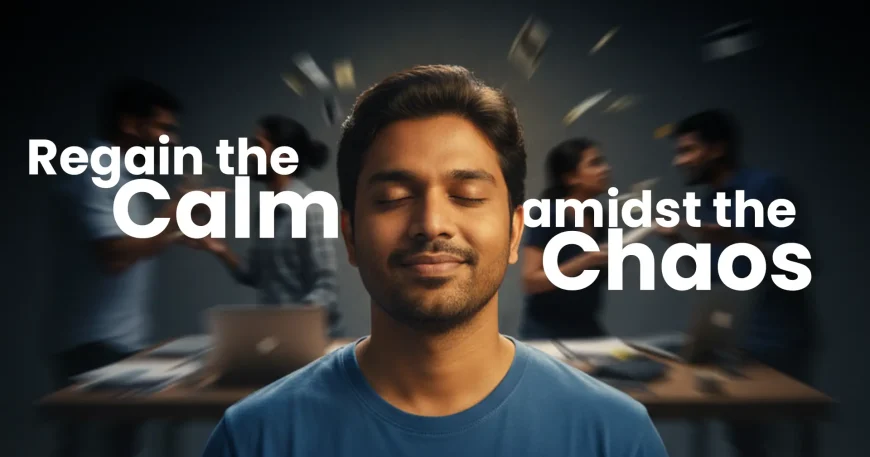In today’s fast-paced world, stress has become a constant companion. For many who visit a counseling center or meet therapists in Kerala, this heightened alert feels normal. We have mistaken constant tension for productivity, wearing our busyness like a badge of honour. Yet beneath this routine pressure lies a hidden transformation. Everyday stress, when ignored, slowly turns into chronic anxiety. The change is not sudden. It creeps in quietly until the familiar ground beneath us starts to feel unstable.
How a Counseling Center Helps Identify the Shift from Stress to Anxiety
For most people, stress and anxiety feel similar. Stress usually appears in response to a clear trigger—a deadline, a traffic jam, or a tense meeting. It is the body’s way of preparing for immediate action and then recovering afterward. Anxiety, however, lasts long after the trigger has gone. It keeps the body’s alarm system switched on even when there is no real threat.
When stress becomes chronic, the body forgets how to relax. What started with one stressful event slowly spreads across days and situations. This pattern changes the brain. Researchers, including those behind a 2015 study in Nature, found that constant cortisol exposure over-activates the amygdala—the brain’s fear center—and weakens the prefrontal cortex, which controls reasoning and calm thinking. The result is a mind trained to expect danger and worry.
Counseling Center Insights on Stress Management in Modern Life
This slow shift from stress to anxiety often goes unnoticed. It begins with simple habits: checking emails nervously, struggling to relax in silence, or waking up tired after restless sleep. Irritability grows, and small problems start feeling overwhelming. People often tell themselves they’re just “under pressure,” but these are early signs of something deeper.
Modern life makes this worse. Notifications, social media, and constant news keep our minds on alert. True rest rarely happens. Therapists in Kerala often talk about the importance of stress management because this constant stimulation leads to exhaustion. Growing loneliness and limited support networks make it harder to recover. When we face life’s demands without support, everyday worries can easily spiral into ongoing anxiety.
How Therapy at a Counseling Center Helps You Overcome Stress and Anxiety
As stress deepens, it affects perception. The anxious mind amplifies small worries and fills ordinary moments with fear. A mild headache feels dangerous, a small mistake feels like failure. These thoughts form a loop: anxiety causes physical tension, which confirms the mind’s fears. Over time, confidence erodes, and calm seems impossible.
Breaking that pattern starts with awareness. Simple practices like mindfulness, grounding, or focused breathing help calm the nervous system. Research shows mindfulness strengthens the same part of the brain that stress weakens. Regular physical activity also helps process excess hormones and build resilience.
Therapists in Kerala often remind clients that effective stress management begins with healthy boundaries. Taking time away from screens, saying no when needed, or allowing rest helps the mind reset. Visiting a counseling center offers additional support—a space to talk, explore fears, and learn safe coping methods.
Regaining Balance and Peace with Support
The path from stress to anxiety is subtle but reversible. By paying attention to early signals, we can step in before worry takes root. The aim is not to eliminate stress completely but to manage it before it becomes overwhelming.
With the right guidance, it is possible to overcome stress and anxiety. Our counseling center provides structured help for this journey, blending professional care with practical self-help strategies. By slowing down, practising mindfulness, and seeking timely help, we can rebuild resilience and rediscover calm. True peace begins when we stop surviving on autopilot and start living with awareness and balance.




